The Prime Minister Attends the Hiroshima Peace Memorial Ceremony, and Other Activities
Saturday, August 6, 2011
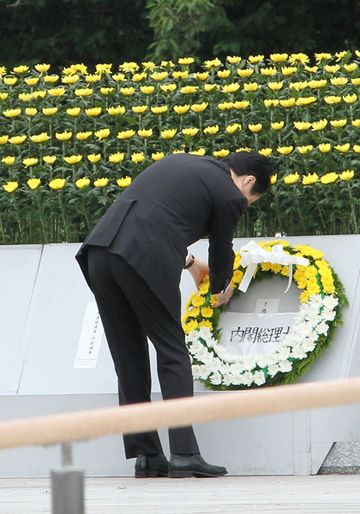
Photograph of the Prime Minister offering flowers at the Hiroshima Peace Memorial Ceremony
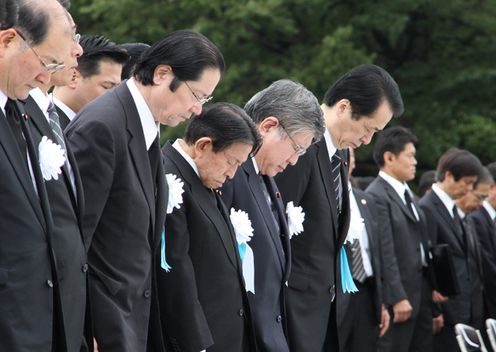
Photograph of the Prime Minister offering a silent prayer at the Hiroshima Peace Memorial Ceremony
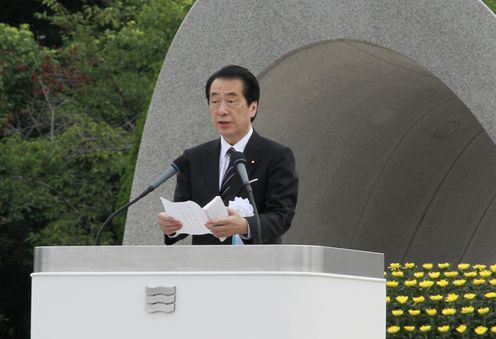
Photograph of the Prime Minister delivering an address at the Hiroshima Peace Memorial Ceremony
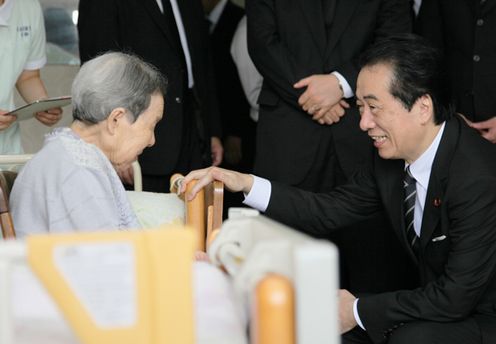
Photograph of the Prime Minister visiting a nursing home for atomic bomb survivors, Kandayama Yasuragi-en 1
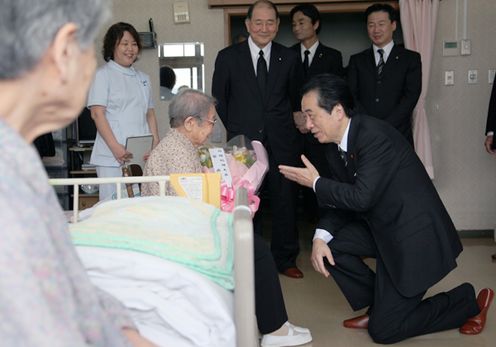
Photograph of the Prime Minister visiting a nursing home for atomic bomb survivors, Kandayama Yasuragi-en 2
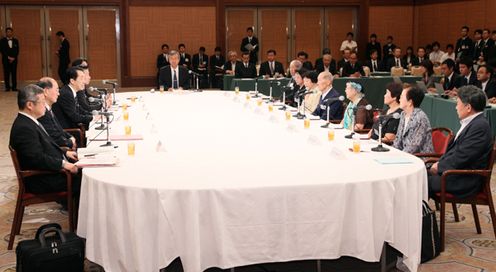
Photograph of the Prime Minister delivering an address at the meeting with the Special Communicators for a World without Nuclear Weapons
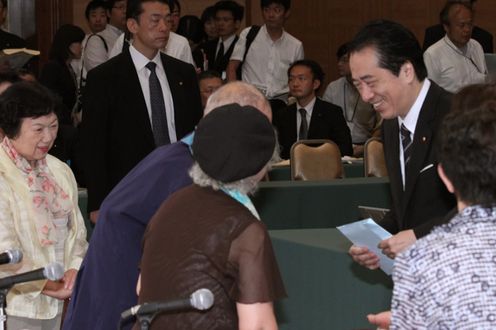
Photograph of the Prime Minister exchanging words with the Special Communicators for a World without Nuclear Weapons after the meeting
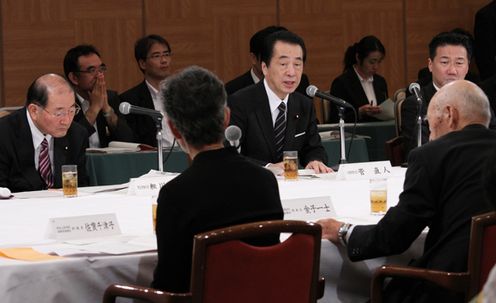
Photograph of the Prime Minister delivering an address at the Meeting to Listen to Requests by Representatives of Atomic Bomb Victims 1
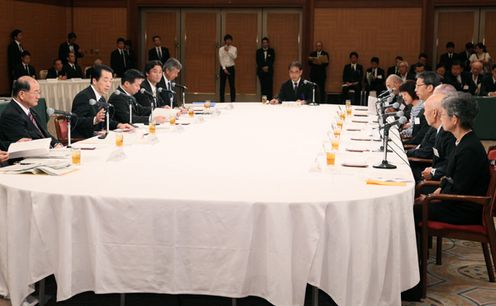
Photograph of the Prime Minister delivering an address at the Meeting to Listen to Requests by Representatives of Atomic Bomb Victims 2
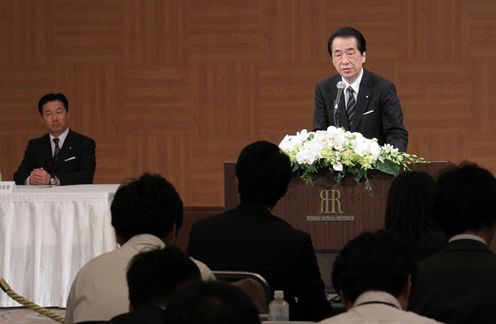
Photograph of the Prime Minister attending a press conference
Prime Minister Naoto Kan attended the annual Hiroshima Peace Memorial Ceremony held in the Peace Memorial Park in Hiroshima City.
Approximately 50,000 people including atomic bomb victims and bereaved family members, as well as representatives of 66 nations and the European Union attended the ceremony marking the 66th anniversary of the atomic bombing.
Mr. Kazumi Matsui, Mayor of Hiroshima City, and the representatives of the bereaved family members added the names of people recognized as atomic bomb victims in the past year to the cenotaph and, furthermore, Prime Minister Kan and other participants led by the representatives of the bereaved family members and the atomic bomb victims offered flowers. Afterwards, the Peace Bell was rung at 8:15 a.m., when the atomic bomb was dropped, and all the participants offered a minute of silent prayer.
In the Peace Declaration, Mayor Matsui called on the world to share in the experience of hibakusha and their yearning for peace, and bring about the abolishment of nuclear weapons, saying, "Through this Peace Declaration, I would like to communicate the hibakusha experience and desire for peace to each and every person on this planet. Hiroshima will pour everything we have into working, along with Nagasaki, to expand Mayors for Peace such that all cities, those places around the world where people gather, will strive together to eliminate nuclear weapons by 2020."
Following the recital of the Promise for Peace by the local elementary school students Ms. Nanoka Fujita and Mr. Masahiro Fukuhara, who represented children, Prime Minister Kan delivered an address, in which he expressed his sympathy for the victims and said, "People must never forget, nor repeat, the horrors caused by nuclear weapons here in Hiroshima 66 years ago. On behalf of the Government of Japan, I pledge that Japan, the only country to have experienced nuclear devastation in war, will observe its Constitution and firmly maintain the Three Non-Nuclear Principles for the sake of the ultimate elimination of nuclear weapons and the realization of eternal world peace."
The Prime Minister also said, "It is Japan's historical responsibility to the world to tell future generations about the horrors of nuclear weapons. I would like to express my appreciation to all of the Special Communicators for their devoted cooperation. The passion and interest of the people of Hiroshima are indispensable in boosting momentum for nuclear disarmament. Japan will work together with everyone in spreading activities related to disarmament and non-proliferation education around the world.
The Great East Japan Earthquake of March 11, 2011 severely damaged Tokyo Electric Power Company's Fukushima Nuclear Power Station. The ensuing large-scale, long-term nuclear incident caused the release of radioactive materials, thus generating tremendous concern in Japan and around the world. I believe that it is our responsibility to take this incident as new lessons for all of humanity, and communicate what we have learned to the people of the world and future generations."
After the ceremony, the Prime Minister visited a nursing home for atomic bomb survivors in Hiroshima, Kandayama Yasuragi-en.
Later, the Prime Minister moved to a hotel in Hiroshima City and met with eight Special Communicators for a World without Nuclear Weapons, who reported their activities to the Prime Minister. The Prime Minister then attended the Meeting to Listen to Requests by Representatives of Atomic Bomb Victims and heard requests from representatives from seven groups of atomic bomb victims and others.
Afterwards, the Prime Minister attended a press conference.









